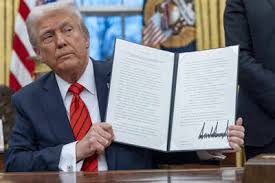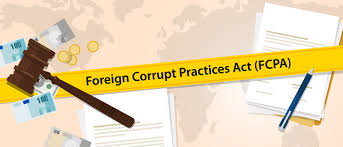Trump Administration Hits Pause on FCPA Enforcement (Part II of V)

In an unprecedented action, the Trump Administration pushed the button and ended FCPA enforcement, at least for 180 days, until new guidance is issued by the Department of Justice. The White House’s announcement seemed to take everyone by “surprise” but in the end was “expected” in light of recent announcements coming from Attorney General Bondi.
The President’s Executive Order
In an Executive Order that appeared to flip the world on its head upside down (as we say), President Trump yesterday signed an Executive Order halting all FCPA enforcement prosecutions, presumably including SEC investigations, noting that the FCPA “has been systematically, and to a steadily increasing degree, stretched beyond proper bounds and abused in a manner that harms the interests of the United States.” Indeed, the Executive Order noted that “[c] urrent FCPA enforcement impedes the United States’ foreign policy objectives and therefore implicates the President’s Article II authority over foreign affairs.”
Further, President Trump’s Executive Order cited the fact that he was acting to promote ” the global economic competitiveness of American companies,” which furthers “strategic business advantages whether in critical minerals, deep-water ports, or other key infrastructure or assets.
Underlying this global economic concern, the Executive Order noted that “overexpansive and unpredictable FCPA enforcement against American citizens and businesses, “for routine business practices in other nations not only wastes limited prosecutorial resources that could be dedicated to preserving American freedoms, but actively harms American economic competitiveness and, therefore, national security.”

FCPA Enforcement Discretion
In light of these findings, the Executive Order directs the Attorney General, for a period of 180 days, to review guidelines and policies governing investigations and enforcement actions under the FCPA, during which the Attorney General shall:
(i) cease initiation of any new FCPA investigations or enforcement actions, unless the Attorney General determines that an individual exception should be made;
(ii) review in detail all existing FCPA investigations or enforcement actions and take appropriate action with respect to such matters to restore proper bounds on FCPA enforcement and preserve Presidential foreign policy prerogatives; and
(iii) issue updated guidelines or policies, as appropriate, to adequately promote the President’s Article II authority to conduct foreign affairs and prioritize American interests, American economic competitiveness with respect to other nations, and the efficient use of Federal law enforcement resources.
The Attorney General is authorized to extend the 180 day period for an additional 180 days. Any FCPA investigations continued or initiated after the review period must be specifically authorized by the Attorney General.

Interestingly, and raising the prospect of remedial measures because of past enforcement actions, the Attorney General ” shall determine whether remedial measures with respect to inappropriate past FCPA investigations and enforcement actions, are warranted and shall take any such appropriate actions or, if Presidential action is required, recommend such actions to the President.”
Policy Rationale
At the core, the Trump Administration noted that “U.S. companies are harmed by FCPA overenforcement because they are prohibited from engaging in practices common among international competitors, creating an uneven playing field.” Further, Trump White House asserted that the U.S. needs to preserve “[s]trategic advantages in critical minerals, deep-water ports, and other key infrastructure or assets around the world.”
With respect to the FCPA, the White House explained that “FCPA interpretation and enforcement by U.S. prosecutors has broadened, imposing a growing cost on our Nation’s economy.” The Trump Administration explained that this action is intended to prioritize American economic and security interests and ensure U.S. businesses have the tools to succeed globally.”















